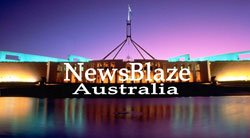Bangladesh - Telecoms, Mobile and Broadband - Statistics and Analyses
Bangladesh reaches peak internet capacity during Covid-19 pandemic
Sydney, Oct. 07, 2021 (GLOBE NEWSWIRE) -- Just released, this edition of BuddeComm report outlines the latest developments and key trends in the telecoms markets. - https://www.budde.com.au/Research/Bangladesh-Telecoms-Mobile-and-Broadband-Statistics-and-Analyses/?utm_source=GNW
The country had been on track to move off the United Nation’s Least Developed Countries list by 2026, however the crisis may have pushed that back a few years.
The telecommunications sector experienced its own set of challenges during this period, with mobile data usage exploding at the same time as many consumers were being forced to curb their spending in other areas. The demand on data grew so large and so rapidly that Bangladesh came close to running out of bandwidth. At the start of 2020, Bangladesh was consuming around 900Gb/s on average, well below the 2,642GB/s capacity of its submarine cables. This ballooned to over 2,300Gb/s during the pandemic. Bangladesh was looking forward to adding 7,200Gb/s capacity when the SEA-ME-WE-6 submarine cable goes into service in mid-2024, but the sudden upsurge in downloads is forcing state-run company Bangladesh Submarine Cable Company Limited (BSCCL) to scramble to find alternatives before the country’s internet supply is maxed out.
The increased demand during the Covid-19 crisis also put pressure on the country’s existing mobile networks, already under strain as a result of strong growth in the mobile broadband market coupled with significant untapped potential for mobile services in general across the country. This led to premium prices being paid at auction for spectrum in the 1800MHz and 2100MHz bands, most of which will be used to enhance and expand LTE services. A 5G spectrum auction had been anticipated for 2020, but low interest from the MNOs in going down that path when there are still so many areas waiting for LTE access means that 5G rollouts will likely be deferred until 2023.
Key Developments:
- Three of Bangladesh’s four MNOs (Grameenphone, Robi, and Banglalink) successfully bid for additional spectrum in the 1800MHz and 2100MHz bands, in what may be one of the most expensive spectrum auctions in the world.
- 2020’s planned 5G spectrum auction has been delayed, with commercial services now not expected to start before 2023.
- Regulatory action against Grameenphone and Robi over outstanding dues and taxes has dragged on for another year, with Supreme Court rulings going against the operators being subject to further appeal in the High Court.
- The Executive Committee of the National Economic Council (ECNEC) threw beleaguered state-run mobile operator Teletalk a lifeline, approving BDT22.04 billion in funding to expand and modernise its network to be ready for 5G.
- The Bangladesh government signed a $500 million financing deal with the World Bank, part of which will be used to install fibre cables along the 48km Jashore-Jhenaidah highway to enhance connectivity in rural areas.
- Bangladesh’s second satellite, Bangabandhu Satellite-2, is on track to be launched in 2023, doubling existing capacity and extending coverage to the country’s more remote areas.
- This report includes the regulator’s market data reports and telcos’ financial and operating data updates to June 2021, Telecom Maturity Index charts and analyses, assessment of the global impact of Covid-19 on the telecoms sector, and other recent market developments.
Companies mentioned in this report:
Bangladesh Telecommunications Company Limited (BTCL), Grameenphone; Banglalink, Robi, Teletalk, Bangladesh Submarine Cable Company Limited (BSCCL)
Read the full report: https://www.budde.com.au/Research/Bangladesh-Telecoms-Mobile-and-Broadband-Statistics-and-Analyses/?utm_source=GNW
CONTACT: Nicolas Bombourg: [email protected] Europe office: +44 207 097 1241 Oceania Office: +61 280 767 665
